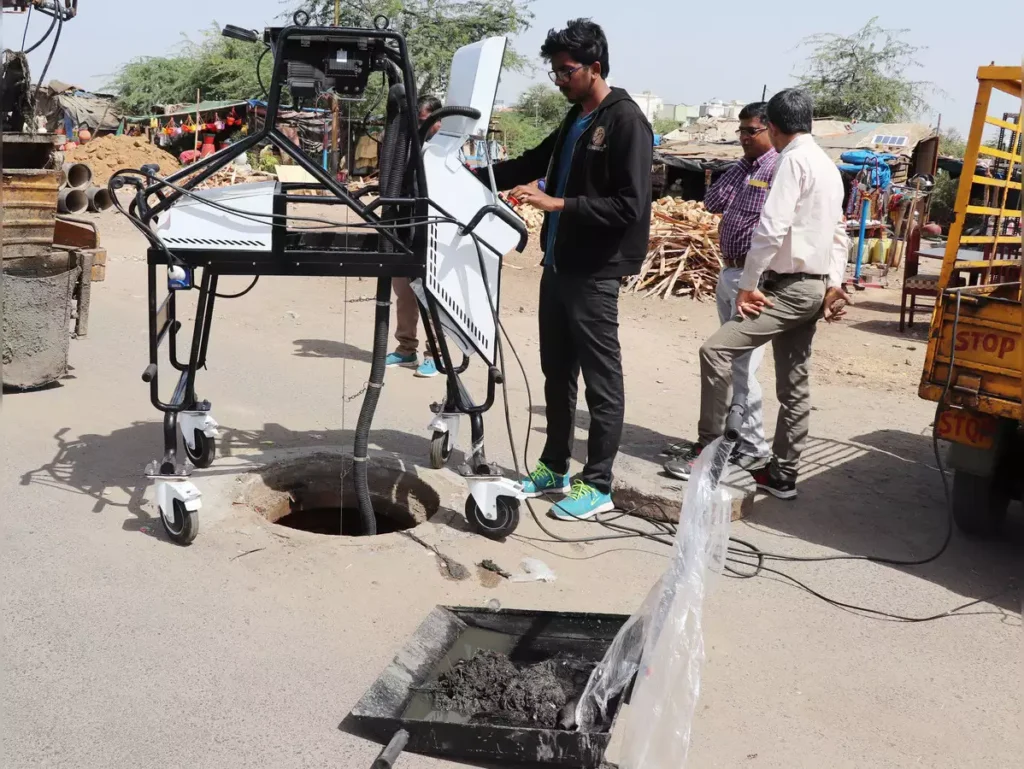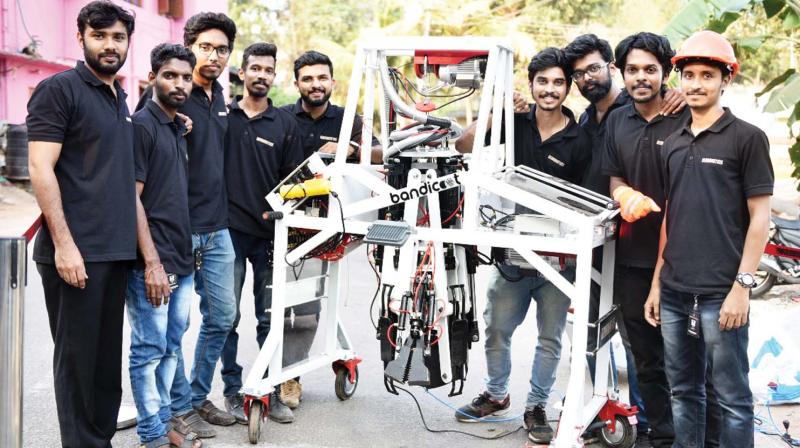In a groundbreaking move towards technological intervention in sanitation, a Kerala-based
start-up has developed a robot designed to eliminate the hazardous and dehumanizing
practice of manual scavenging. This innovation marks a significant step in ensuring the safety
and dignity of workers who have long been subjected to perilous conditions in cleaning
sewers and septic tanks.
The Issue of Manual Scavenging
Manual scavenging, a practice of manually cleaning human waste from sewers and open
drains, has been outlawed in India under the Prohibition of Employment as Manual Scavengers and their Rehabilitation Act, 2013. However, due to the lack of mechanized alternatives and inadequate enforcement of laws, many workers continue to be employed in highly unsafe conditions, often resulting in severe health issues and even fatalities. Despite multiple government interventions, including the introduction of rehabilitation programs and safety guidelines, manual scavenging persists in various parts of the country. Recognizing the need for a sustainable solution, this Kerala start-up has leveraged robotics to address the challenge.
The Robotic Innovation
The newly developed robot, named “Bandicoot,” is an advanced machine equipped with robotic arms and high-resolution cameras to navigate through sewage systems efficiently. It is designed to enter confined spaces, detect blockages, and remove waste, reducing the need for human intervention in hazardous environments. Developed by Genrobotics, a start-up focused on socially impactful technological solutions, Bandicoot uses artificial intelligence (AI) and machine learning to adapt to different sewer
conditions. It can operate with high precision, ensuring thorough cleaning while minimizing risks to workers.

Impact on Sanitation Workers
This innovation not only eliminates the need for human entry into septic tanks but also creates opportunities for workers to upskill and transition into safer, technology-driven roles. Many former manual scavengers have been trained to operate the Bandicoot robot, allowing them to work in a more dignified and secure environment. The introduction of this robotic solution aligns with the Swachh Bharat Mission’s goal of achieving a cleaner and more hygienic India. By reducing human exposure to hazardous
waste, it significantly lowers health risks and fatalities associated with sewer cleaning.
Future Prospects and Government Support
The Kerala government, along with other state authorities, has shown interest in deploying, these robots in urban municipalities. Several city corporations are exploring collaborations with the start-up to integrate Bandicoot into their sanitation frameworks. Experts suggest that scaling up the use of such robotic solutions across India could revolutionize waste management and sanitation, ensuring that no human has to risk their life for sewer cleaning.
With continued support from the government, NGOs, and the private sector, robotics could pave the way for a complete eradication of manual scavenging in India. The success of this innovation in Kerala serves as a beacon of hope, demonstrating how technology can be harnessed to solve deeply entrenched social issues.

